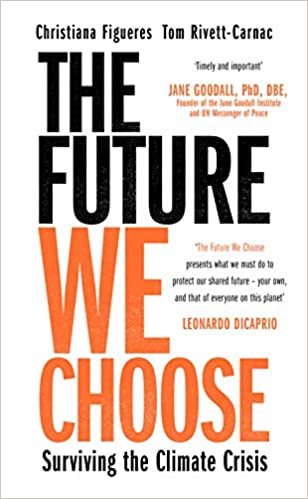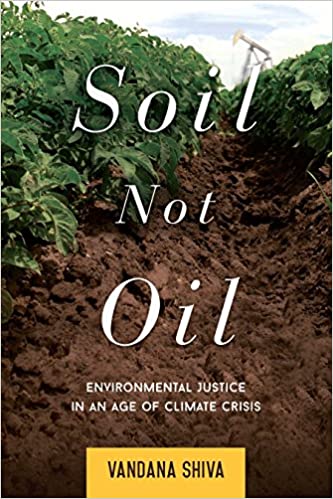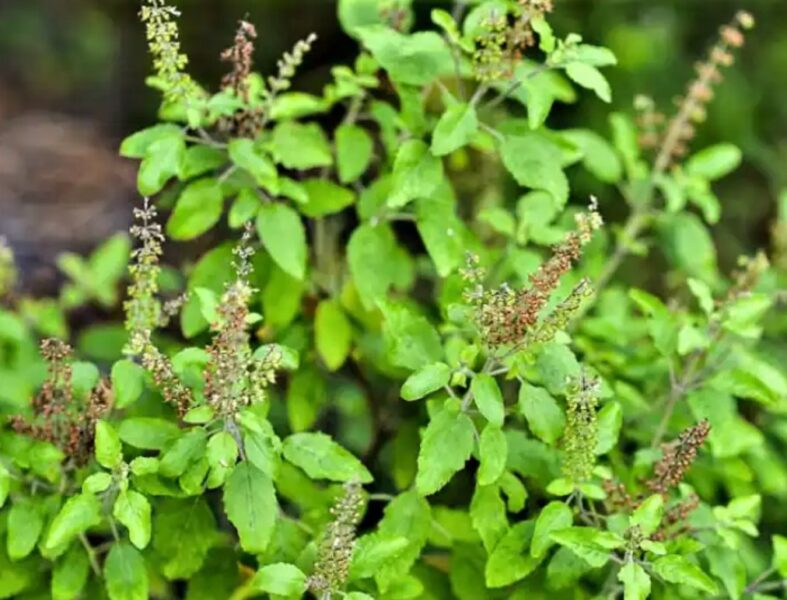
It's the peak of summer and is it just me or does every year the summer feels a little hotter than the previous year? I remember when I was growing up, we did not have any air conditioners at home. Simply a fan would suffice for the entire season. But it seems as though every year with the increasing Global Warming, a fan is not enough. Even the winters are not as harsh. Every day the newspapers, environmental activists, social media, and textbooks keep alerting us about the melting icebergs and rise of the ocean level. The likeliness of cities submerging underwater is a threat that is looming more than ever now. This phenomenon is called climate change.
Our aloofness and indifference towards our planet is the major reason behind this global crisis. There is still time and hope to not succumb to this fate that will be brought upon mankind due to climate change. Therefore, it is not only important to understand climate change but it is equally important to have a thorough understanding of ecology, biodiversity, zero waste, and everything in between.
We have curated a book list that you must read for understanding Climate Change, Ecology, Biodiversity, Zero Waste & Global Warming.
1. A River Runs Again
By Meera Subramanian
Twitter: @Meeratweets

Meera Subramanian in her book goes looking for the ordinary individuals and microenterprises resolved to resuscitate India's assaulted natural world. It is a story of an engineer turned farmer carrying natural food to Indian plates. The villagers are reviving a river that runs dry. Cookstove architects endure on the journey for a smokeless fire. Biologists bring vultures back from the edge of extinction and in Bihar, one of India's most impoverished states, an intense young lady shows teenagers the importance of sexual wellbeing. While researching these five ecological difficulties, Subramanian finds the narratives that reestablish trust for a country with the possibility to lead India and the planet into a sustainable and prosperous future.
Amazon India: Click Here to Check Out
2. The Great Derangement: Climate Change and the Unthinkable
By Amitav Ghosh
Twitter: @GhoshAmitav

Amitav Ghosh in this novel suggests that politics, much like literature, has become a matter of personal moral reckoning rather than an arena of collective action. But to limit culture and politics to individual moral adventure comes at a great cost. The climate crisis asks us to imagine other forms of human existence, a task to which fiction, Ghosh argues, is the best suited of all forms. The Great Derangement serves as a brilliant writer’s summons to confront the most urgent task of our time.
Amazon India: Click Here to Check Out
3. This Changes Everything: Capitalism vs. The Climate
By Naomi Klein
Twitter: @NaomiAKlein

Naomi Klein in her book urges us to forget everything we think we know about global warming. She states that it's not about carbon - it's about capitalism. The book explores ways in which we can seize this existential crisis to transform our failed economic system and build something radically better.
Amazon India: Click Here to Check Out
4. Staying Alive: Women, Ecology, and Development
By Dr. Vandana Shiva
Twitter: @drvandanashiva

Inspired by women’s struggles for the protection of nature as a condition for human survival, award-winning environmentalist Vandana Shiva, through her book, shows how ecological destruction and the marginalization of women are not inevitable, economically or scientifically. She argues that “maldevelopment”—the violation of the integrity of organic, interconnected, and interdependent systems that sets in motion a process of exploitation, inequality, and injustice—is dragging the world down a path of self-destruction, threatening survival itself.
Amazon India: Click Here to Check Out
5. The Future We Choose: Surviving the Climate Crisis
By Tom Carnac and Christiana Figueres
Twitter: @tomcarnac & @CFigueres

This book shows us how we will survive the climate crisis. Also, The book presents us with two choices for our future, which are still unwritten. This book shows us what the world will look like in 2050 if we do nothing. The other is what it will look and feel like if we Act now.
Amazon India: Click Here to Check Out
6. Soil Not Oil
By Dr. Vandana Shiva
Twitter: @drvandanashiva

In Soil Not Oil, Vandana Shiva explains that a world beyond dependence on fossil fuels and globalization is both possible and necessary. Condemning industrial agriculture as a recipe for ecological and economic disaster, Shiva champions the small, independent farm. Therefore, Soil Not Oil proposes a solution based on self-organization, sustainability, and community rather than corporate power and profits.
Amazon India: Click Here to Check Out
7. Biopiracy: The Plunder of Nature & Knowledge
By Dr. Vandana Shiva
Twitter: @drvandanashiva

This book discusses the much-debated issue of patents, traditional knowledge systems, and the industry which is behind patenting for commercial profits.
Amazon India: Click Here to Check Out
8. Oneness VS. The 1%
By Kartikey Shiva and Dr. Vandana Shiva
Twitter: @drvandanashiva

Shiva exposes the model of philanthrocapitalism, which is about deploying unaccountable money to bypass democratic structures, derail diversity, and impose totalitarian ideas, based on One Science, One Agriculture, and One History, She calls for a resurgence of real knowledge. Hence the people can reclaim their right to Live Free, Think Free, Breathe Free, Eat Free.
Amazon India: Click Here to Check Out
9. Wood Smoke and Leaf Cups
By Madhu Ramnath

Woodsmoke and Leafcups is a first-hand account of his life in Bastar: the routines of communal life and the interactions of the Durwas with the State machinery. He writes of a culture where energy and laughter are currency, although of no value to anyone else. He draws a portrait of friends and teachers, threats and ways of evading them, and the lure of politics for those long indifferent to it. At a time when 'there are few places in which to lose oneself', Ramnath writes of a people and a place that exists outside, sometimes counter to, known narratives.
Amazon India: Click Here to Check Out
10. One Straw Revolution
By Masanobu Fukuoka

Call it “Zen and the Art of Farming” or a “Little Green Book,” Masanobu Fukuoka’s manifesto about farming, eating, and the limits of human knowledge present a radical challenge to the global systems we rely on for our food. Similarly, it is a spiritual memoir of a man whose innovative system of cultivating the earth reflects a deep faith in the wholeness and balance of the natural world.
Amazon India: Click Here to Check Out
11. The Burning Forest
By Nandini Sundar
This book chronicles how the armed conflict between the government and the Maoists has devastated the lives of some of India's poorest, most vulnerable citizens. The fact that Bastar has some of India's biggest mineral reserves has made the conflict even more intense, and also destroyed the ecology and culture of Bastar.: India's War in Bastar.
Amazon India: Click Here to Check Out
12. The Chipko Movement
By Shekhar Pathak

This book by Shekhar Pathak, says Ramachandra Guha in his introduction, “is the definitive history of the chipko movement”. In India, modern environmentalism was inaugurated by the chipko movement, which began in 1973. The voices of “subalterns” – ordinary men and women such as Gaura Devi who made chipko what it was – have not been recorded. Pathak places chipko in its grassroots contexts. He shows that in leadership and ideology chipko was diverse and never a singular Gandhian movement. Every scholar and serious student of Indian environmentalism will need to engage with the empirical richness and analytic solidity of this book.
Amazon India:- Click Here to Check Out
In addition, also Read: 98 Practical Tips to Start Living More Mindfully





